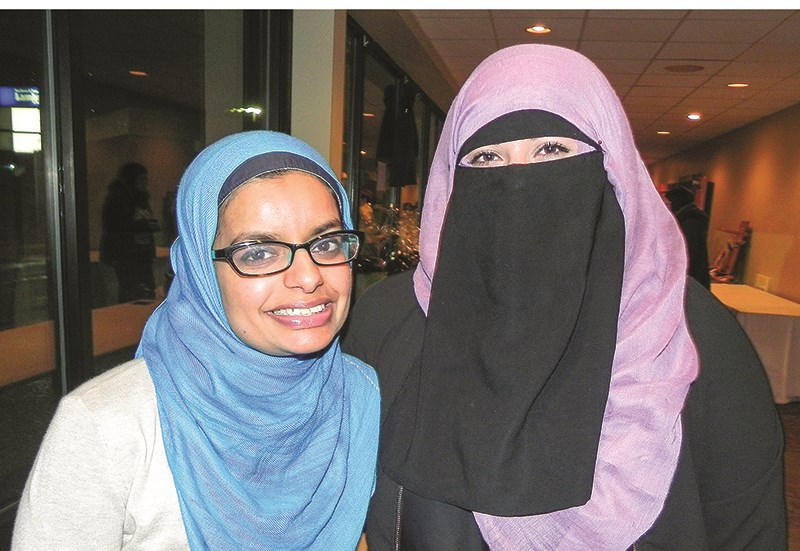Cathy Dobson
Rezan Mosa admits she gets more stares and more “stinkeye” since the ISIS attacks in Paris, but she has no intention of going out in public without her face-covering niqab.
“Whenever shootings happen Muslim’s become afraid,” she said. “But we shouldn’t have to feel fearful. Muslims are also horrified by Paris and condemn these acts.”
Sarnia’s Muslim Association member Aruba Mahmud wears a hijab, a veil that covers the head and chest.
“The Muslim community feels shocked and saddened like everyone else,” she agreed. “This has nothing to do with the Muslim religion. Hundreds of Muslims and non-Muslims are being killed every day, regardless of their faith.”
Mahmud said she walks the streets of Sarnia a little more cautiously since the Paris attacks and does worry about a backlash.
“But I don’t feel unsafe. I might get glares but I’ve never felt unsafe in Sarnia.”
The two women were guest speakers at the second annual Global Citizenship Summit hosted by Lambton College last week.
The event featured international foods and guest speakers focused on debunking cultural myths.
Mahmud, 31, from Sarnia and Mosa, a 22-year-old Western University student, were asked to explain why they wear the hijab and niqab respectively.
“I decided to start wearing the hijab full-time in 2003,” Mahmud told about 150 gathered for the evening presentations.
Mahmud was raised in Sarnia had just moved to London to attend university when she decided to wear the headscarf.
“I don’t think it was a coincidence,” she said. “I was 19 and that’s when people usually start partying and drinking, not covering up.”
She had a sense that students on campus would be more accepting of her attire than had she worn it in Sarnia.
Mahmud said she made the choice “to feel closer to my Lord. Also, in a world where women are hyper-sexualized, it was liberating.”
Mosa said there are many misconceptions about women who wear the niqab, a veil that covers the entire face except for the eyes.
“People think we are forced to wear it and that we are oppressed. For me, to tell me I can’t wear it, that would be oppressive.”
She began wearing the niqab almost two years ago.
“It gave me a sense of empowerment and I felt a closeness to God,” she said. “Many people are surprised that I came to this decision on my own, but I did. Both the niqab and the hijab are about modesty and I just want to be more modest.”
It’s not easy to wear, she added. Her own father has been the most vocal opponent of her choice, Mosa said.
“Both my mother and father are concerned about ridicule.”
